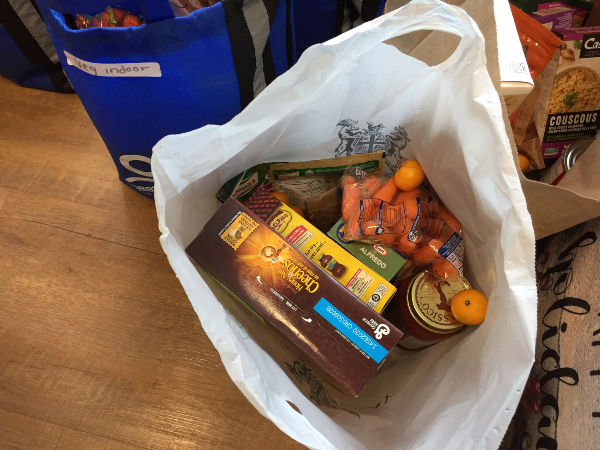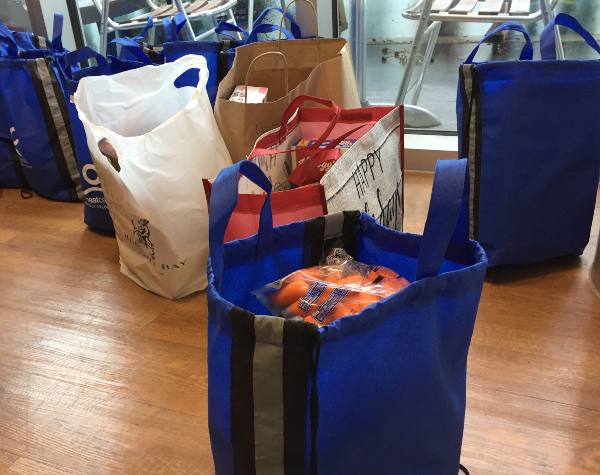Youth are one of the fastest growing and most vulnerable subgroups of the homeless population. A study conducted on Toronto’s homeless youth population found that youth facing homelessness were nutritionally vulnerable.
Being nutritionally vulnerable and not receiving the nutrition needed by the body to function properly has significant ramifications:
- Youth experiencing homelessness appear more vulnerable to nutrient inadequacies than youth in the general Ontario population
- Lack of sufficient nutrition can lead to poor health which is a barrier from obtaining and maintaining employment—a significant component for youth overcoming homelessness
- Income-generating strategies to obtain food often include panhandling, squeegeeing, sex-trade work, and crime
- Being homeless means no food storage or cooking facilities, so often youth eat fast food because it’s inexpensive and immediately consumable
- Because food is such a sought-after commodity, it can be used to coerce females into human trafficking or “survival sex” situations
- Homeless youth sometimes cope with trauma through higher levels of tobacco, drug and alcohol use, which can also deplete funds that could be used for nutrition
- Poor nutrition can lead to impaired cognitive and physiological functions, an increased risk of infections, and can “exacerbate depression, substance abuse, tuberculosis, hepatitis B, HIV, and other sexually transmitted diseases, all of which are more prevalent among homeless youth in Canada” (quoted from the study).
There Is Some Good News!
Charitable meal programs, like those offered at CHV, had a positive correlation with protein, folate, and vitamin A intake. The study also showed that these meals correlated with a decline in alcohol intake amongst the males.
Youth enrolled in CHV’s Crisis Program and Rights Of Passage program have regular access to healthy meals, a safe environment and have support to work through any addictions, if applicable.
For youth who live on the street or in other residences, CHV offers our Drop-In Centre and Outreach program to meet youth where they are, in an effort to help bridge the nutrition gap.
What is Covey’s Cupboard?
Our Drop-In Centre has started a new program as well called Covey’s Cupboard. Youth can access a food bag once a week and bags are created both for youth who are housed as well as for those who are living on the streets. There is mixture of easy, ready to eat food as well as some that require minor preparations. Young people can choose from options like vegetarian and pork free.
Through our partnership with the Greater Vancouver Food Bank, we are able to provide healthy nonperishables such as granola bars, canned tuna, and fruit cups as part of our offering.
Youth can select from a variety of canned goods, pasta, snacks, bread, and perishables. “Food is a great way to show youth that we care, and it can be a great tool when building a relationship with a young person.” explains Kristy, Director of Communications and Marketing at Covenant House Vancouver.
Currently, youth can access Covey’s Cupboard Monday to Friday between the hours of 9am to 12pm and from 2pm to 5pm. It’s best to check with the Drop-In Centre at 1302 Seymour St. for the most up-to-date hours.
Click here if you’d like to find out more about food or clothing donations to Covenant House Vancouver, to help support youth.


